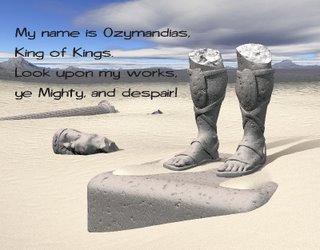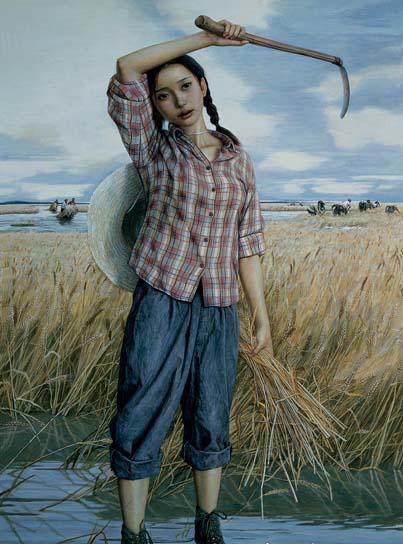About the Poet: Kahlil Gibran was born on 6th January 1883, in Bsharri, Lebanon. Being very poor, his learning was limited to regular visits to a village priest who taught him with the essentials of religion and the Bible, alongside the Syrian and Arabic languages.
When Gibran was eight, his father was accused of tax evasion and was sent to prison. The Ottomon authorities confiscated the Gibrans’ property and left them homeless. The strong-willed mother decided that the family should immigrate to the U.S.
They arrived in Boston in 1895. Having no formal education, Gibran was placed in an ungraded class reserved for immigrant children, who had to learn English from scratch. Gibran’s curiosity also led him to the cultural side of Boston, which exposed him to the rich world of the theatre, Opera and artistic Galleries. In 1904 Gibran had his first art exhibition in Boston. From 1908 to 1910 he studied art in Paris with August Rodin. In 1912 he settled in New York, where he devoted himself to writing and painting. Gibran’s early works were written in Arabic, and from 1918 he published mostly in English. In 1920 he founded a society for Arab writers called Mahgar. Gibran died in New York on 10th April 1931.
About the Poem: “Song of the Rain” by Kahlil Gibran was first published as a part of the collection of poems by him entitledTears and Laughter. This collection was published in the year 1947.
Setting on the Poem: This poem is set in the arena of nature. Rain is born in the lap of nature, and it also brings much joy to nature. His entire life is spent in the same place, yet he has no regrets. He is happy to beautify Mother Nature’s garden throughout his brief existence.
Stanzawise Annotation:
Please note: N = Noun, V = Verb, Adj = Adjective, Adv = Adverb, P = Preposition, Pr = Pronoun
1st stanza:
Dotted (V): Past tense of the word “dot”, that is, (of a number of items) to be scattered over (an area)
Adorn (V): Make more beautiful or attractive
2nd stanza:
Pearls (N): Plural form of the word “pearl”, that is, a hard, lustrous spherical mass, typically white or bluish-grey, formed within the shell of a pearl oyster or other bivalve mollusc and highly prized as a gem
Plucked (V): Past participle form of the word “pluck”, that is, to take hold of (something) and quickly remove it from its place
Crown (N): A circular ornamental headdress worn by a monarch as a symbol of authority, usually made of or decorated with precious metals and jewels
Ishtar (N): The East Semitic Akkadian, Assyrian and Babylonian goddess of fertility, love, war, and sex
Dawn (N): The first appearance of light in the sky before sunrise
Embellish (V): Make (something) more attractive by the addition of decorative details or features
3rd stanza:
Humble (V): Cause (someone) to feel less important or proud
Rejoice (V): Feel or show great joy or delight
Bow (V): Bend the head or upper part of the body as a sign of respect, greeting, or shame
Elated (V): Past tense of the word “elate”, that is, to make (someone) ecstatically happy
4th stanza:
Messenger (N): A person who carries a message or is employed to carry messages
Mercy (N): Compassion or forgiveness shown towards someone whom it is within one’s power to punish or harm
Quench (V): Satisfy (one’s thirst) by drinking
Cure (V): Relieve (a person or animal) of the symptoms of a disease or condition
Ailment (N): An illness, typically a minor one
5th stanza:
Declares (V): Third person present tense of the word “declare”, that is, to say something in a solemn and emphatic manner
Arrival (N): The action or process of reaching a place at the end of a journey or a stage in a journey
Announces (V): Third person present tense of the word “announce”, that is, to
Departure (N): The action of leaving, especially to start a journey
Earthly (Adj): Relating to the earth or human life
Elements (N): Plural form of the word “element”, that is, any of the four substances (earth, water, air, and fire) regarded as the fundamental constituents of the world in ancient and medieval philosophy
Upraised (V): Past participle form of the word “upraise”, that is, to raise (something) to a higher level
6th stanza:
Emerge (V): Move out of or away from something and become visible
Soar (V): Fly or rise high in the air
Descend (V): Move or fall downwards
Embrace (V): Hold (someone) closely in one’s arms, especially as a sign of affection
7th stanza:
Announcement (N): A formal public statement about a fact, occurrence, or intention
Welcome (Adj): (Of a guest or new arrival) gladly received
Sensitive (Adj): Having or displaying a quick and delicate appreciation of others’ feelings
8th stanza:
Overcomes (V): Third person present tense of the word “overcome”, that is, to defeat (an opponent)
9th stanza:
Sigh (N): A long, deep audible exhalation expressing sadness, relief, tiredness, or similar
10th stanza:
Affection (N): A gentle feeling of fondness or liking
Spirit (N): The non-physical part of a person which is the seat of emotions and character; the soul
Suggested Reading: Summary of Song of the Rain by Khalil Gibran in Hindi
Detailed Analysis: We have considered your feedback and did a detailed analysis of quite a few poems at Beamingnotes. Luckily, the poem you’re reading now, Song of the Rain does have a detailed analysis. This will help you understand the poem in great dept and help you score good! Here are the following links- For detailed summary: Summary of Song of the Rain ; For complete annotations: Song of the Rain Meaning ; For detailed critical analysis: Critical Analysis of Song of the Rain ; For theme, tone, central idea of the poem: Tone and Central Idea of Song of the Rain and for suggested solved questions: Solved Question and Answers from Song of the Rain.
Some online learning platforms provide certifications, while others are designed to simply grow your skills in your personal and professional life. Including Masterclass and Coursera, here are our recommendations for the best online learning platforms you can sign up for today.
The 7 Best Online Learning Platforms of 2022
- Best Overall: Coursera
- Best for Niche Topics: Udemy
- Best for Creative Fields: Skillshare
- Best for Celebrity Lessons: MasterClass
- Best for STEM: EdX
- Best for Career Building: Udacity
- Best for Data Learning: Pluralsight

















Generally words carry different meanings in different situations of a poem.
I am thankful that words relating to this poem is clearly discussed. It will surely help a lot to the person who is interested in this poem.